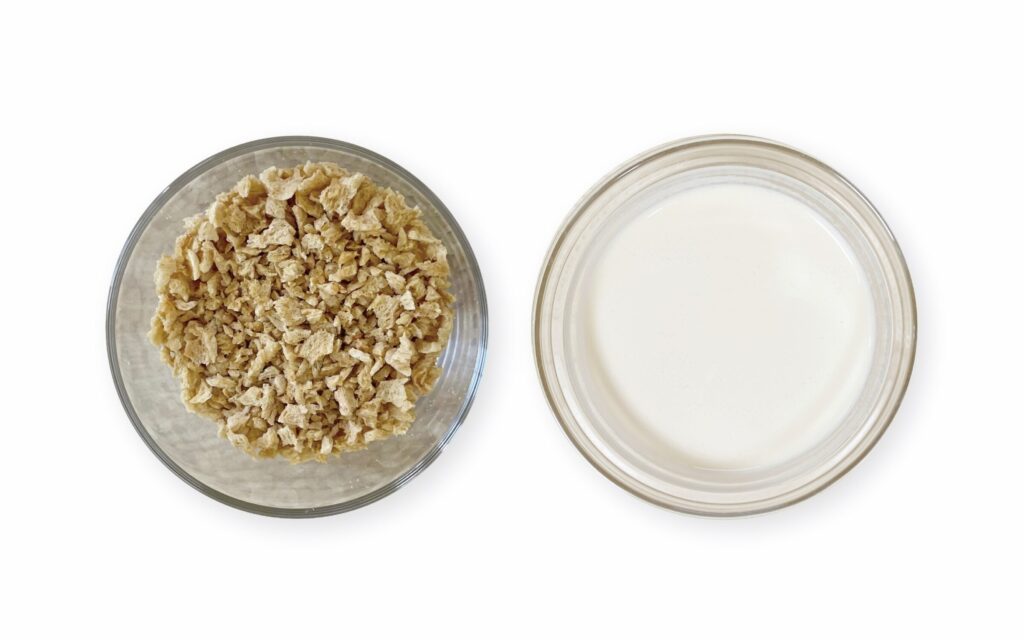Move Over, Seitan: With $47M Series C, Japanese Startup To Bring Plant-Based ‘Miracle Meat’ to the World
5 Mins Read
Japanese plant-based meat company DAIZ, which uses a proprietary soy germination tech to make ‘miracle chips’ for vegan analogues, has raised ¥7.1B (about $47.4M) in Series C funding, which it will use to build a new 40,000 sq ft facility.
The investment round – which includes the Mitsubishi UFJ Capital, Roquette, Miyoshi Oil & Fat and Kagoshima Bank – brings DAIZ’s total financing to ¥13.6B ($87.6M), which it says is the largest sum raised for a food tech company in Japan. It had raised ¥650M (US$6M) in Series A funding in 2020, and ¥1.85B ($17M) in a Series B round last year.
The latest round involves a mix of equity and debt funding, the latter of which uses a combination of investment vehicles from Japan’s Ministry of Economy, Trade and Industry and the Ministry of Agriculture, Forestry and Fisheries.
DAIZ says it plans to use the Series C funds to build its new production plant in Kumamoto, which it claims will be the largest plant-based meat factory in Japan. The facility is planned for a February 2025 launch, with the first phase of construction having a capacity of 8,000 tons per year. Eventually, it’s expected to produce 20,000 tons of plant-based meat annually.
The company hopes to expand both its domestic and international footprints – it has collaborated with 7-Eleven Japan for two deli products, and is already working with partner companies in Europe, North America and Asia and is looking to speed up its strategy and contribute to the local economy with job creation.

Creating ‘miracle chips’ for vegan meat and eggs
DAIZ uses proprietary tech that involves a high-pressure process called Ochiai, where whole soybeans are germinated to activate enzymes and increase the number of free amino acids, which contribute to flavour and texture without requiring synthetic additives. The resulting ingredient is what DAIZ calls ‘miracle chips’, and these can be used to make a host of plant-based meat products, like fried chicken, burgers and tuna.
The company has already partnered with French ingredient company Roquette (one of the Series C investors), to produce a pea-based variant of its Miracle Meat, and says it has developed a Miracle Egg too, which extends its portfolio from just meat analogues. The introduction of eggs makes sense given that Japan is the world’s largest consumer of eggs.
Using soybeans is a shrewd move considering the ingredient’s prevalence in Japanese culture, where it is used to make foods like tofu, edamame, natto, miso and shoyu. And while Japan is home to seitan, one of the oldest and still widely used plant-based meat ingredients, its alt-protein sector has been booming of late.

Japan’s plant-based potential
Japan’s plant-based market doubled in size between 2019-22, with 2020 known as ‘year one’ for the country’s alt-protein industry, marking the time when the number of products significantly increased. Players like vegan egg maker Umami United, meat alternatives company Next Meats (which also makes eggs) and plant-based chicken and egg brand 2Foods are just a few of the leaders in this sector. In addition, a fair few larger corporations have moved into vegan products in Japan, including Marukome’s Soy Lab, Otsuka Foods’ Zero Meat, as well as meat producers Itoham Foods and NH Foods.
In October 2021, a survey found that 53% of Japanese respondents primarily viewed plant-based meat as having “low calorie and fat values compared to regular meat”, while only 37% of respondents thought of plant-based meat as “sustainable”. Around the same time, another poll found that less than 20% of consumers in Japan were aware of plant-based foods, of whom, 40% had tried these products.
Earlier this year, only 17.5% of respondents to another survey said they had consumed soy protein meat, with only 3.1% trying plant-based meat made from other ingredients. Interestingly, nearly a fifth of participants said they are intentionally eating less animal foods at least once a week and identify as flexitarians.

Government support for vegan food
This is where the opportunity could lie for brands like DAIZ, and there has been government support too. Policymakers have set up government departments to promote food tech, which includes alt-protein. In 2021, Japan released a white paper listing meat substitutes as a solution for its 2050 net-zero targets, while economic bodies like the Japan External Trade Organization are collaborating with alt-protein companies to grow the market further.
Last year, the government announced its intention to introduce new labelling conventions to remove hurdles for the vegan food industry, with minister Taro Kono calling the lack of guidelines a “shackle” for the industry’s development, In the proposed rules, statements like “contains soy meat”, “not meat” and “oat milk” would be acceptable terms – a far cry from labelling regulations in regions like France, the US and the EU.
Speaking about the latest financing, Tatsuya Koitabashi, director and chief financial officer at DAIZ, noted that while the current funding environment for startups is weak, it received investment from 11 companies, including existing shareholders, as well as debt financing from nine financial institutions.
“New industries are born from the edge of regulation, and by using the financing systems of the Ministry of Economy, Trade and Industry and the Ministry of Agriculture, Forestry and Fisheries, we will be able to procure long-term corporate loans at a low cost, which is unusual for startups,” he said. “I think we have succeeded.”




